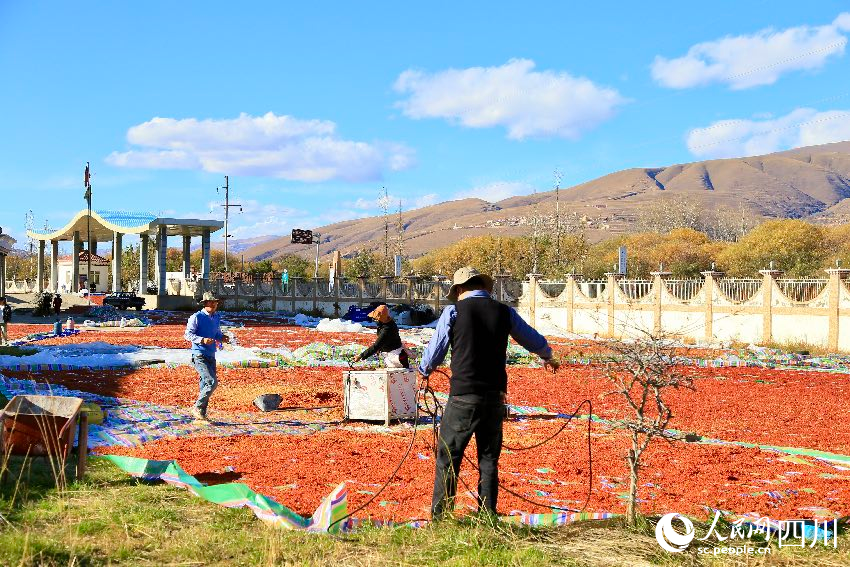




- BRNN
- BRI News
- BRNN News
- Database
Official Documents Polices and Regulations
Inter-government Documents International Cooperation BRI Countries
Business Guide Economic Data BRI Data
Trade
Investment Projects Latest projects
Cases - Content Pool
 |
| Farmers dry malus toringoide fruits in Luhuo county, Ganzi Tibetan Autonomous Prefecture, southwest China's Sichuan Province. (People's Daily Online/Zhu Hong) |
Ese tea is a unique specialty product from Luhuo county in Ganzi Tibetan Autonomous Prefecture, southwest China's Sichuan Province. The tea is crafted from the leaves of malus toringoides, which thrive in areas situated at elevations ranging from 3,000 to 3,800 meters.
Nowadays, the leaves of malus toringoides have become "gold leaves" for the development of the Ese tea industry in Luhuo county. Renowned for its exquisite aroma, subtle hue, and health advantages, Ese tea has garnered widespread acclaim among consumers, leading to a surge in market demand. This burgeoning industry has not only captured the interest of consumers but has also become a source of economic prosperity for the local community.
"My wife and I can pick about 50 kilograms of tea leaves every day," said a local farmer named Tashi Gyaltsen. Before the establishment of an industrial park in this area, the value of the tea trees was largely unrecognized. "Previously, we would gather medicinal plants or mushrooms during specific seasons, but now, by plucking tea leaves, we have found an additional source of income," he explained.
In recent years, Luhuo county has been actively leveraging its abundant resources to develop its industrial strengths. The county has championed a model for shared prosperity that involves special industries, ethnic brands, cooperative enterprises, and local farmers and herders. More than 2,000 farmers and herders in the county have achieved an annual average increase in income of around 3,500 yuan (about $487) per person through tea picking or fruit picking.

Tel:86-10-65363107, 86-10-65368220, 86-10-65363106